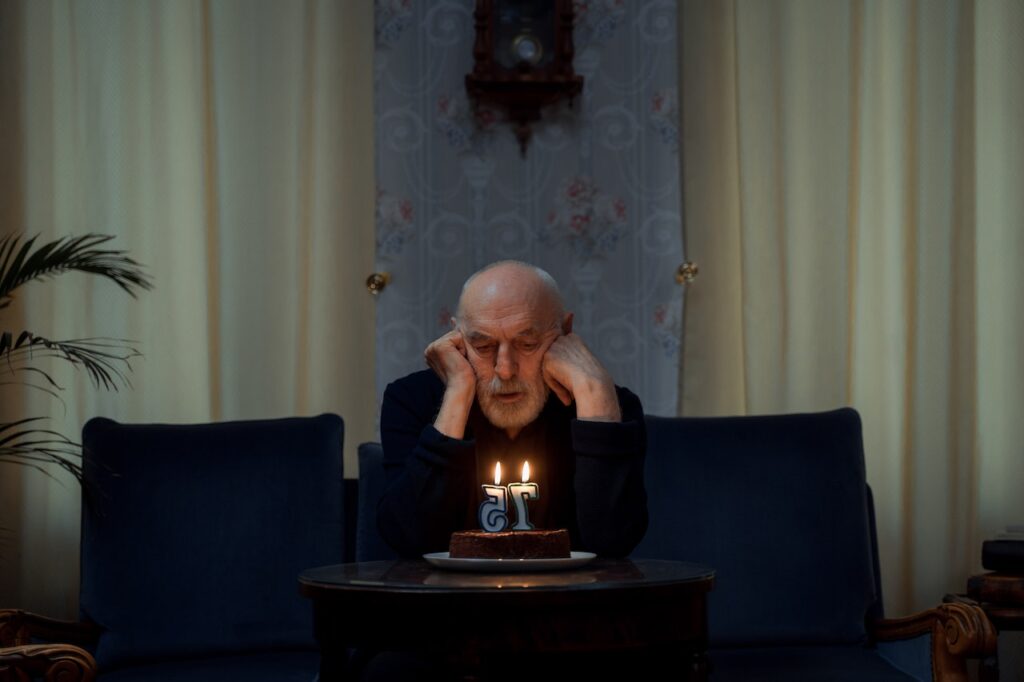Discover comprehensive information for all aspects of sexual health and find resources and guidance to empower your sexual well-being.
Sleep-related painful erection (SRPE) is a rare condition where people get painful erections while they’re…
Discover comprehensive information for all aspects of sexual health and find resources and guidance to empower your sexual well-being.
Sleep-related painful erection (SRPE) is a rare condition where people get painful erections while they’re…
Erectile dysfunction (ED) is a condition that affects many men worldwide, leading to significant stress,…
The International Society for the Study of Women’s Sexual Health describes Hypoactive sexual desire disorder…
The pelvic floor muscles are the unsung heroes of our body’s core, providing support to…
Erectile dysfunction (ED) is a condition that many men face at some point in their…
Achieving and maintaining a strong penile erection is a common concern for many men. It…
Commitment issues can often manifest in romantic relationships, work, and other personal or professional spheres.…
Existential frustration and existential vacuum are profound psychological concepts rooted in existential philosophy and psychology. These terms, introduced by Viktor Frankl in his logotherapy, help us understand human experiences related to meaning, purpose, and psychological distress.
Table of Contents
ToggleExistential frustration arises when one starts thinking about the ultimate questions in life like what’s the point of it all, why are we here, who am I really, and, death. It’s when all those deep thoughts make an individual feel uneasy, confused, or just plain disappointed.

This type of frustration can emerge when people experience difficulty in finding a sense of purpose or direction in their lives. They may feel that their existence lacks meaning or significance. It can also arise when individuals face the fact that they’re not immortal and that their lives are finite and will eventually come to an end.
‘Existential‘ means anything related to existence. It’s like when we start pondering on the fact that we’re here, alive and kicking. Or we can also delve into the deeper stuff, contemplating the meaning and purpose of our existence or existence in general.
When we say ‘existential,’ we’re considering the idea that each person is one-of-a-kind and brings something unique to the world just by existing. And when we talk about ‘existential frustration,’ it’s like this whole other level of thinking about our existence. It’s about our deep desire to figure out the meaning behind our lives. We may start wondering if anyone actually cares if we’re alive or not and if our presence really makes any difference in the grand scheme of things.
So, the will-to-meaning is all about that deep longing and drive to pursue and strive for higher values that really inspire us. On the flip side, existential frustration kicks in when we feel stuck and blocked from those meaningful goals that give our life purpose.
How does frustration happen? Well, first, we fail in our attempts to form meaningful connections. That leads to a sort of “short circuit” in our energy and enthusiasm for life. Our inner drive for meaning gets suppressed, and we start feeling numb and lifeless because we feel we don’t have any reason to really live for anymore.
There is no straight-up answer to the question: “What is the purpose of my life?” The most you can do is seek out the purpose of your existence at this moment, moment by moment.
Everyone goes through some kind of existential frustration, in one form or another, to one degree or another. It’s like this feeling of being stuck and blocked from a meaningful goal, and instead of getting more determined, it just brings you down in defeat. That’s where logotherapeutic interventions come in—they’re all about reigniting your passion and waking up your motivation again.
Read the Guiding Principles of Logotherapy here.

The inability to find or create meaning in life leads to feelings of emptiness, alienation, pointlessness, and aimlessness.
Frankl spoke about the tragic triad of human existence: pain, guilt, and death. None of us can escape suffering, always get things right, or avoid mistakes and failures forever. Plus, we’re all gonna kick the bucket someday, no doubt about it!
He mentioned this thing called “suffering boredom.” It’s like this special kind of anguish when you feel empty inside like nothing really matters. When there’s not much to get excited about or a lack of reasons for anything, we just suffer. Frankl called it an “existential vacuum,” this feeling that life doesn’t hold much significance. It manifests itself mainly in a state of boredom.
The whole existential vacuum thing can show up in different disguises. It’s like wearing various masks. Sometimes when we feel frustrated and empty inside, we try to compensate by seeking power, and I mean any kind of power, even the basic desire for money. On other occasions, instead of searching for meaning, we turn to the pursuit of pleasure as a replacement. It’s like these different ways we try to fill that void within us.

Way back in history, we lost some of those basic animal instincts that provide a secure framework for their behavior. We can’t rely on that kind of carefree security anymore. From then on, we have to make choices and decisions for ourselves.
But that’s not all. In more recent times, the traditions that used to guide our behavior are fading away really fast. Hence, we’re left without any built-in instincts telling us what we have to do or traditions telling us what we ought to do.
Sometimes, we are even clueless about what we actually want to do.
So, what ends up happening is we either try to do what everyone else is doing (conformism), or we end up doing what others want us to do (totalitarianism).
Sunday Neurosis is the gloomy feeling that hits people when they realize there’s a lack of substance in their lives once the hectic week is over and they’re faced with their own inner emptiness.
Pensioners and aging people often go through similar crises.
References:
Dr. Nishtha, a medical doctor holding both an MBBS and an MD in Biochemistry, possesses a profound passion for nutrition and wellness. Her personal journey, marked by significant struggles with physical and mental health, has endowed her with a unique empathy and insight into the challenges countless individuals face. Driven by her own experiences, she leverages her background to offer practical, evidence-backed guidance, empowering others on their paths to achieving holistic well-being. Dr. Nishtha truly believes in the interconnectedness of the mind and body. She emphasizes the significance of understanding this connection as a crucial stride toward attaining balance and happiness in life.

